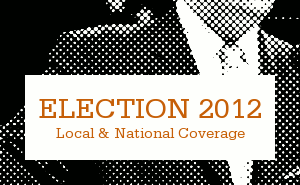Pennsylvania Governor Tom Corbett will announce a plan to inject new revenues into the state’s dilapidated transportation system in his February 5 budget address, according to a top administration official.
At a hearing on Wednesday, Transportation Secretary Barry Schoch said that the governor still must decide which funding recommendations he’ll take from the report issued by his Transportation Funding Advisory Commission last summer.
“Then it’s a matter of the legislature and the governor’s office getting together, both the House and the Senate and the governor’s office on selecting the elements they can all agree on that can become legislation,” said Schoch. “So, I expect a healthy debate on ‘exactly how much’ and ‘when’ to occur when the governor introduces his proposal on transportation finance.”
The Commission determined that the state needs a $2.5 billion investment into its roads and bridges over the next five years. It suggested several funding streams, including the uncapping of the Oil & Gas Tax and increased registration fees. Both the House and Senate have introduced measures that adopt at least some of the recommendations.
Schoch made his comments before the House Democratic Policy Committee. Many of the Democrats there were angry at what they considered a lack of leadership from the governor on transportation finance.
“There just seems to me to be a high level of timidity out of the administration for dealing with this in a very aggressive way,” said Representative Dan Frankel, an Allegheny County Democrat.
Schoch said that while Governor Corbett hasn’t spoken out on the subject yet, transportation funding remains a priority of his. He said that the administration supports the idea of borrowing money for infrastructure projects, as long as new revenues are found to pay off the debt.
More Port Authority Cuts Looming
As though to put an exclamation point behind the Secretary’s comments, Port Authority of Allegheny County CEO Steve Bland warned the panel of his agency’s $64 million budget shortfall for the coming fiscal year. Bland said that if the funding gap isn’t filled, PAT will be forced to drop 40 of its 102 bus routes, a 35 percent cut.
Bland said that concessions in union contracts and improvements to efficiency weren’t enough to fend off a budget deficit that he said results from systemic underfunding on the part of the Commonwealth.
“I won't mince words: the most visible impact of our failure to fund transportation will occur right here in Pittsburgh by September, with a minimum of 500 — just within the Port Authority — 500 job losses, [and] 20,000 people losing access to transportation,” said Bland.
Bland called on the administration and the legislature to enact the TFAC funding recommendations as soon as possible.
Schoch said that one TFAC suggestion favored by the governor is a plan to allow counties or groups of counties to create taxing authorities, whose revenues would be put toward roads and bridges — and mass transit.
“If those counties wanted to go together, and said, ‘We’re going to do a $20 surcharge on registration to add x amount of dollars to what the state provides, so that we can accomplish more with the Port Authority and with the highway network,’ — if that’s important to this region, they could go above and beyond that,” said Schoch. “The enabling legislation, as I see it, would open up the toolbox. It wouldn’t require anyone to do anything.”
Schoch said whichever funding streams are adopted, the state must find a long-term solution for transportation funding this year.
Said Schoch, “If we collectively decide not to act on this, all we’re doing is telling our kids — it’s sort of like saying, ‘We’re going to give you a car. It’s got 250,000 miles on it and the tires are bald, but we’re giving it to you. That’s the good news.’ That’s kind of what we’re doing with our transportation system.”






